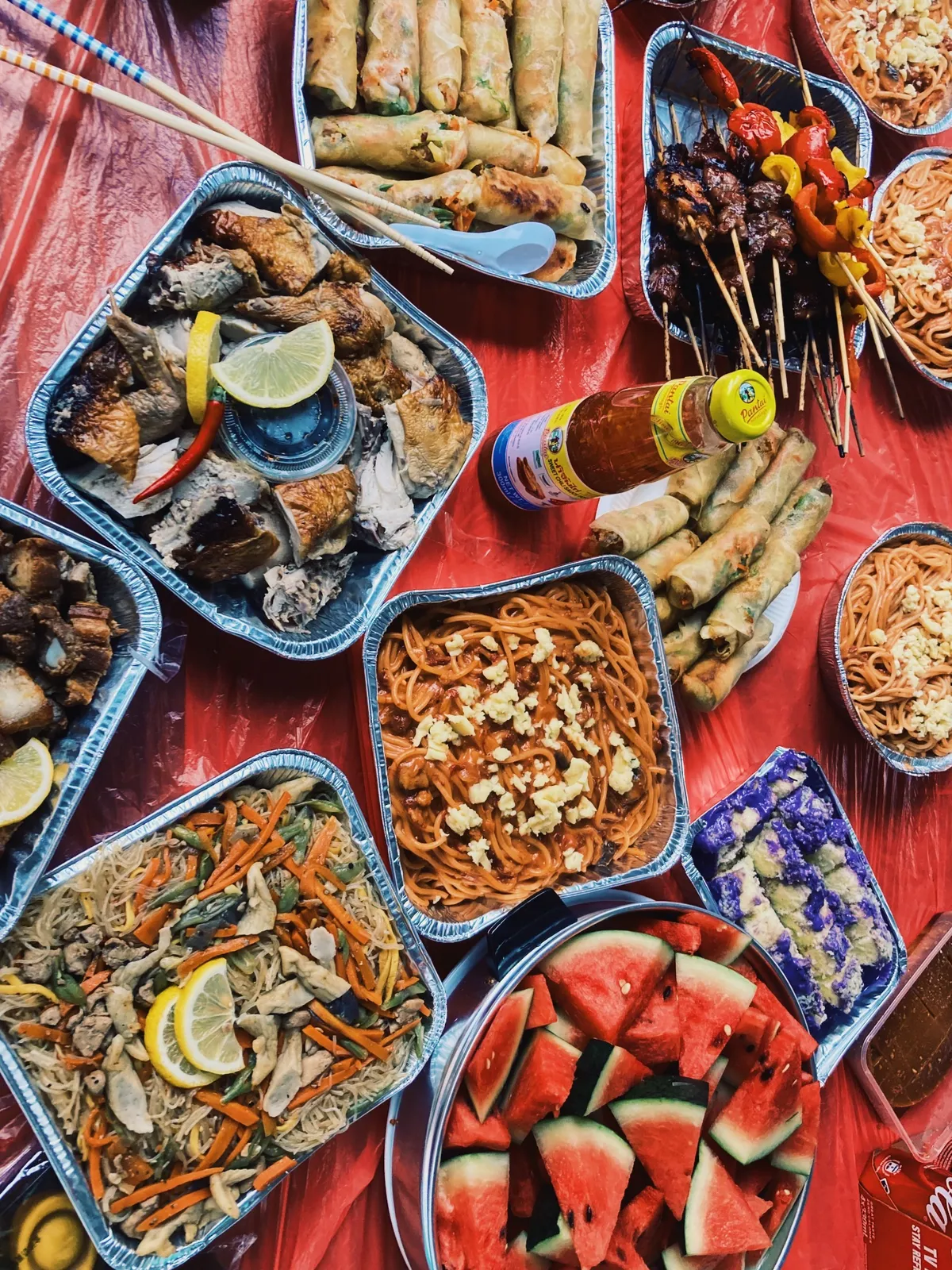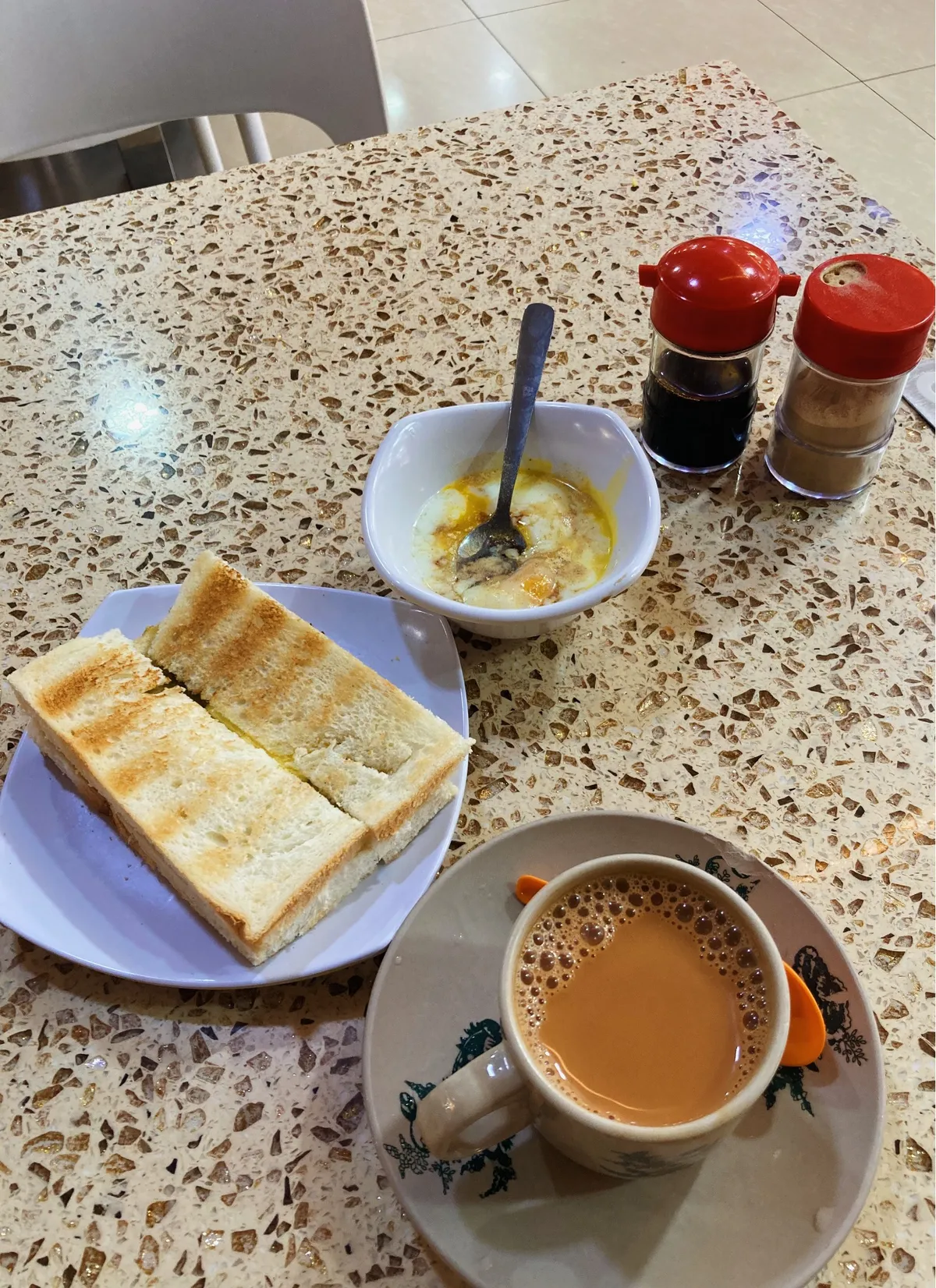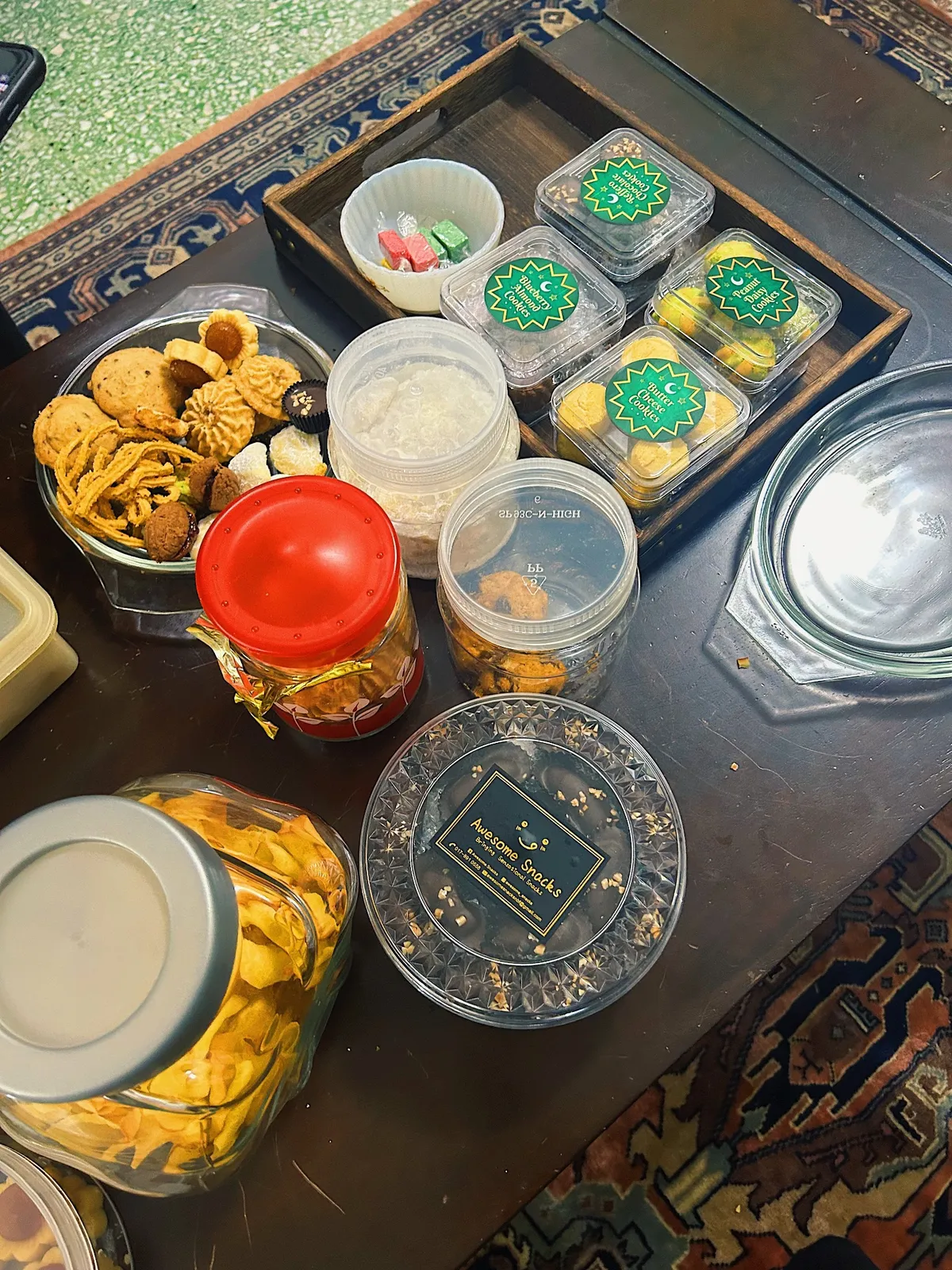221. Kapwa ("togetherness, kindred spirit, etc.") in different cultures
Often, when I'm abroad, I like to meander around the city. Sometimes I come across a bunch of tourists, many of them Asian families that go around. Sometimes I lock eyes with a Filipino person, just walking around, usually in a small young people group (I prefer to talk to people around my age, instead of big families having quality time together!) I guess it doesn't really help that my face isn't really Filipino looking, I guess. When this happens, the stranger has some random girl making really uncomfortable eye contact with them, but I try to utter a "Filipino ka ba?" within earshot and the shift of stranger to connection is instantaneous. They light up, smile, and talk to me enthusiastically.
As someone who is only half, and sometimes don't look like it (since people could clock my other half, but not my "Filipinoness" straight away!), I wonder - how much is this warmth and openness is embedded in me? I did not grow up fully immersed in the culture since I moved to the US when I was quite young, but the instinct to connect and to recognize as kin even before we've exchanged names, feels intrinsic. I feel the need to relate to someone I've never really known before because it's just the vibe.
There's a word in Filipino called, "kapwa", which basically means "togetherness" or "kindred" or "shared identity" or "fellow human". But more than that, it is a way of seeing the world, a perspective that doesn't separate "me" from "you," but instead emphasizes the space that we share. It's usually used when addressing another person with the intention of establishing a connection and reflects a viewpoint that beholds the essential humanity that is recognizable in everyone. Basically, it is an unspoken understanding that we are all connected, not just through blood or nationality, but through the very essence and experience of being human.

I truly believe that 'kapwa' in Filipino culture is best exemplified through the cuisine. Look at this spread that my titas made for us omg
Kapwa is not just a word; it is simply a way of life. It most likely the explanation why Filipinos are so warm, so social, and so quick to fold you into their world with laughter and generosity. It's the reason why family gatherings spill over into the streets, why strangers are called "kuya" (older brother) and "ate" (older sister) sometimes. That's why you could walk into a Filipino home and be force-fed like a long-lost cousin. This philosophy encourages Filipinos to building meaningful relationships that enriches both the individual and the community as a whole. Kapwa fosters a unique relationality that is the basic undertone of Filipino society, creating a strong sense of "togetherness" among everyone.
I feel like I see kapwa in other cultures as well. Across the world, people instinctively form deep connections based on shared identity and mutual support. It seems like wherever there are humans, there is some version of kapwa at play. I asked a couple of my international friends for some examples, here's what I thought about:
A sense of "kapwa" that people feel, especially in Europe, exists in Mediterranean countries. While I don't necessarily think that there is a single word that exists in Albanian, Bosnian, Croatian, Serbian, French, Greek, Italian, Maltese, Monégasque, Montenegrin, Slovenian, Spanish, Catalan, Galician, Basque, Aranese, Turkish, Bulgarian, Portuguese, Macedonian (am I missing one? I just totally named all of the countries around the Mediterranean lol) that encompasses the concept I'm trying to say. If there is, please reach out to me and tell me! I must know.
Mediterranean warmth is genuine, expressed through shared time and presence rather than instant familiarity. In Spain and Italy, conversations unfold over long meals, where laughter and debate blend together. In Greece, friendships deepen through rituals of care- a neighbor offering olive oil from their own harvest, an elder slipping you an extra candy with a knowing smile. I asked my Greek friend about this yesterday, and talked about the word, "philoxenia". She said it was more like "hospitality". To me, Mediterranean hospitality has a connection that is rich, layered, and woven through shared traditions and time.
Gatherings have an effortless flow- there’s no rush, no pressure, just the shared enjoyment of good food, stories, and laughter. If it’s an Italian Sunday lunch, a Spanish sobremesa (long conversation after a meal), or a Greek evening by the sea, the joy is in the lingering, the unspoken understanding that there is nowhere else to be but here, together.
In many Latin American countries, there’s a natural emphasis on togetherness, joy, and community - not in a superficial way, but in a way that’s deeply woven into daily life. Neighbors talk across balconies. Kids run between houses. Tías and abuelas and cousins all chime (in the chisme) in when you’re telling a story. You don’t just belong to yourself - you belong to each other. That’s a kind of relational mindset that mirrors the same impulse: the belief that your well-being is tied to the well-being of those around you.
And maybe there’s a word for it in Spanish, maybe not (can someone email me about this?) - but you feel it in the music, in the way meals stretch on for hours, in the unhurried joy of sitting on a porch and just being together. It’s a kind of collective heart, beating beyond language, pulling you into its rhythm. It’s about staying until the very last dish is cleared - and maybe even staying longer.
For example, the word "hygge" in Denmark is a thing that refers to a cultural emphasis on coziness, togetherness, and warmth - especially during long winters. I asked several of my Danish friends about this concept. It's often associated with candles, wool socks, hot drinks. Most people think of its "aesthetic coziness" People make an effort to create intimate, comfortable social settings. Why? The dark, cold seasons necessitate strong social bonds. In its core, it's about belonging - it's often found in small, intimate moments like gathering around a dinner table with close friends, finding comfort in a well-lit, inviting space.
While hygge and kapwa originate from vastly different cultures, one shaped by the cold, introspective winters of Scandinavia, and the other by the communal, sunlit islands of the Philippines - both of these concepts reflect a deep-rooted value of human connection and shared experience.
There’s something about the Filipino concept of shared identity - of recognizing yourself in another - that feels deeply familiar in Malaysia too, even if it’s not named the same way. To me, maybe it's just the shared Southeast Asian vibe you feel in every country. You sense it in the rhythm of everyday life, especially in those unassuming moments when connection just happens. I've felt it many times while being here.
When I feel it in Malaysia, I feel it at the mamak 1, for instance, it’s not unusual to see a Malay family seated beside a group of Chinese students, with Indian uncles chatting two tables over. Everyone's caught in the same late-night glow of fluorescent lights and teh tarik foam - united by food, laughter, and an unspoken understanding that this space belongs to all. Nobody needs to say it out loud. You just know that you belong. The guy at the counter might call you boss, and with that, you’re folded into the shared life of the place. That easy camaraderie - that sense of being part of something - is something people across cultures understand, even if they call it by different names.

This is my go-to mamak breakfast order. Kaya toast, half boiled egg, and a teh tarik (but not super foamy... I like the foam tho)
Or take another scene, less romantic but just as telling. I had a local friend tell me a story about his car being stuck in the mud by the roadside, tires spinning helplessly. There’s no formal emergency, no dramatic plea for help - but within minutes, a few uncles appear out of nowhere. Maybe two random dudes, probably with a cigarette tucked behind the ear. Without hesitation, they start pushing. This has actually happened to me a couple times. They don’t ask who you are, or what you’re doing there. They just help. Not because they have to, but because that’s what you do when someone is in need. It’s instinctive - a reflection of a deeper sense of shared responsibility that transcends race, class, and language. In these moments, everyone is simply human - and everyone is connected.
In Malaysia, this feeling is shaped by the country’s pluralism - its capacity to hold difference without letting it fracture the social fabric entirely. It's so diverse and everyone could feel it. It shows up during holidays - community events and holiday family time where everyone chips in, regardless of background. It’s in the auntie who passes you extra kuih during Raya, or the uncle who offers help during car troubles. It’s not loud or performative. It’s in the little gestures - the way someone keeps the elevator door open, the way a stranger might call you kakak during a Grab ride with your friends, like you’ve always been part of their world. There’s something deeply grounding in that - in being seen and included without needing to earn it.

Beautiful snack and dessert spread during a Hari Raya party that I was invited to by my friend. It was such a great party.
Further Readings
(1) Intercultural Communication Studies XII-4 2003 Asian Approaches to Human Communication: Filipino “Kapwa” in Global Dialogue: A Different Politics of Being-With the “Other” by S. Lily Mendoza and Jim Perkinson
(2) Pakistan Journal of Psychological Research (PJPR) Role of Shared Identity (Kapwa) in Forgiving Others: A Collectivistic Approach in Understanding Forgiveness by Darwin C. Rungduin, Teresita T. Rungduin, John Ray B. Acopio
(3) Philippine Worldview : KAPWA: A CORE CONCEPT IN FILIPINO SOCIAL PSYCHOLOGY by Virgilio G. Enriquez
(4) Collective Identities in the Mediterranean by José Miguel G. Cortés, Universidad Politécnica, Valencia : Collective Identities in the Mediterranean
(5) Ministry of Foreign Affairs of Denmark What do we mean by "hygge"? - denmark.dk
(6) ‘Concept of the umbrela people in Malaysia' (In Bahasa), definition of the history of "the concept of the umbrella of national people in Malaysia" : KONSEP PAYUNG ANAK WATAN DI MALAYSIA (From translating it to English, this is basically some information on some history and the society in Malaysia. Some references about the Rukun Negara, which is basically the Malaysia National Precepts [to me, the goal of it is to maintain the unity among the people and basic rights in the country.])
~ inday2 kayla,
<3 K
🍄 https://marblethoughts.bearblog.dev/
Mamak: a 24 hour restaurant that you can buy variety types of roti. Most iconic drink is teh tarik which is a simple milk tea but with foam on top of it as a result of being "tarik-ed". There's also rice with few selectable dishes and few a la cart fried food available to order.↩
Asia-Pacific Social Science, Hazel T. Biana and Ruel M. Nalam, De La Salle University, Philippines; Centro Escolar University, Philippines Terms of Endearment: The Displacement of Inday↩